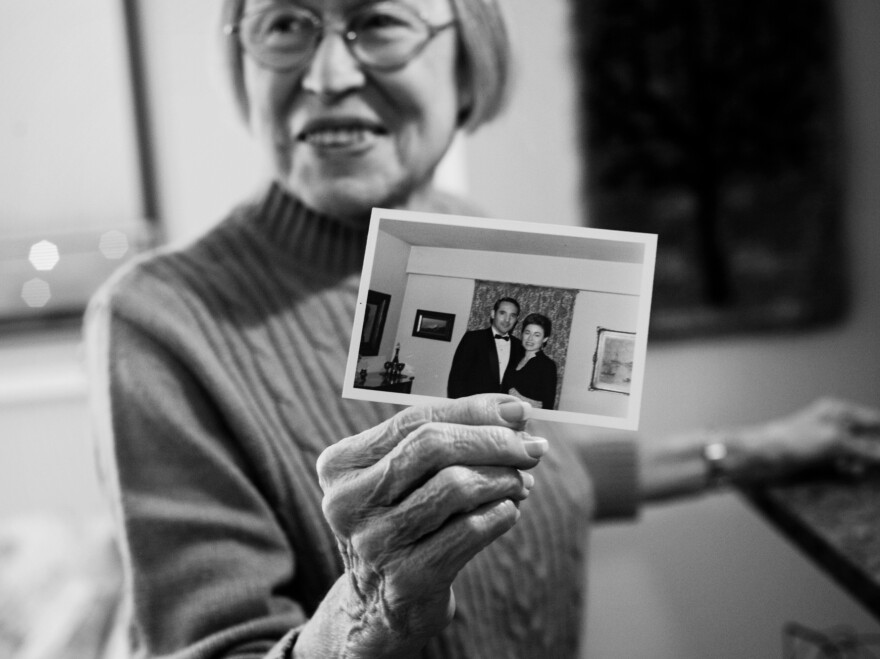Most research on memory loss in the elderly focuses on dementia, Alzheimer's disease or other brain diseases.
But neuroscientist Emily Rogalski from Northwestern University's Feinberg School of Medicine knew there is great variation in how good memory is in older people. Most have memory loss to varying degrees, but some have strong memories, even well into old age.

Rogalski wanted to know just how good. So she began recruiting volunteers age 80 and up from the Chicago area to test their memories. The study appeared in the Journal of the International Neuropsychological Society.
The volunteers came into Rogalski's memory lab and were given a barrage of tests. Rogalski says she told the participants: "We want individuals who are over age 80 to perform on memory tests like 50- to 60-year-olds, or better."
Participants had to memorize a list of random words and recall the words some time later. Or they listened to stories and were later tested on the many small details in them. "The memory tests were very hard," says Lou Ann Schachner, 84, who volunteered for the study along with her 81-year-old husband, Jay.
What Rogalski found was that some of the elderly participants had outstanding memories; they did as well as — if not better than — people in their 50s.
But such individuals who do really well on the memory tests are not common, she adds. Of those who came in to have their memories tested, only about 1 in 10 had exceptional memories. This group Rogalski calls "superagers."
Once this group of superagers was identified, Rogalski was eager to find out what explains their exceptional memories. Her first step was to see if the brains of the superagers looked any different than those of other 80-year-olds.

Each superager was given several MRI scans. Rogalski then analyzed the brain pictures, exploring the outer layer of the brain called the cortex, which is critical for thinking and memory. The cortex is comprised of dense layers of nerve cells, and its thickness indicates the health of the brain.
In Alzheimer's, for example, the cortex gets thinner and shrinks. But in the superagers, Rogalski says, "What we found was quite remarkable. We found that the [cortices of] individuals who are superagers look more like those of 50- to 60-year-olds." There was no significant thinning or shrinkage of the cortex in the superagers, compared to people 20 or 30 years younger.
At first, Rogalski didn't believe what she had found. So she analyzed the MRI scans again, confirming the findings.
"Then we found something even more surprising, which was even harder to believe," she says. "In an area called the anterior cingulate of the brain, it was actually thicker in the superagers than it was in the 50-year-olds." The anterior cingulate is a small brain region important for attention and memory.
A youthful cortex and thicker cingulate suggest to Rogalski that these two brain regions have been spared the typical age-related shrinkage, which may be what protects against the memory decline seen in most elderly people. Superagers also have fewer risk genes for Alzheimer's than typical 80-year-olds, she notes.
But there may be other explanations for the exceptional memories of these superagers. Perhaps they've always had bigger brains; maybe they have an excess of reserve that the majority of elderly people do not. Another possibility, Rogalski says, is that the memory of a superager declines much more slowly.
To check out these possible explanations for why 1 in 10 individuals over age 80 has an exceptional memory, Rogalski has recruited 30 more 80-year-olds with exceptional memories. She's currently in the process of analyzing their brain scans.
So stay tuned, she says. But for now, the take-home message is that the loss of memory as we age is not inevitable.
Copyright 2020 NPR. To see more, visit https://www.npr.org. 9(MDAwMTM1NDgzMDEyMzg2MDcwMzJjODJiYQ004))


